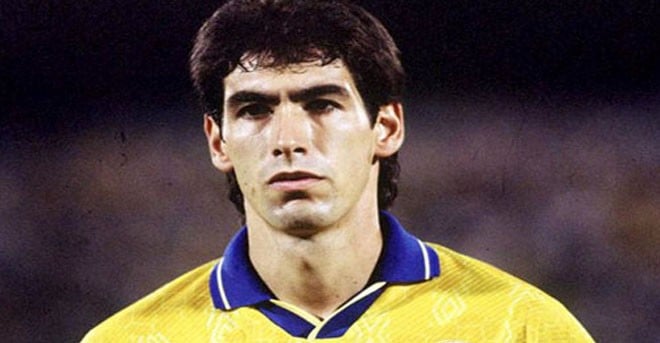

With the failure of peace talks between the government and Taliban, Pakistan seems to be going deeper into a social and political quagmire. The situation is likely to become more troublesome after 2014 when the US and NATO troops withdraw from Afghanistan, leaving behind a big mess for Pakistan to mop.
There could be numerous reasons for the deadlock between the government and the miscreants, but one obvious reason is the lack of skills for effective dialogue and conflict resolution on both sides. Nations confront crises and overcome them through perseverance and visionary leadership.
One wonders what sport in general and football in particular has to do with conflict resolution. Time has proved that sport is one such solution that has proved its efficacy in the process of conflict resolution.
On 2nd July, 1994, Colombian football player Andres Escorba was shot in the city of Medellin, apparently because he had scored an own goal in the FIFA World Cup held in the USA.
His father, Dario Escobar, had been involved in a programme to use football to help the victims of conflicts. Following the murder of his son, he set up a foundation, the Andres Escobar Project, to promote this work further.
Out of this tragic event emerged a worldwide programme to use the passion for football in Colombia and beyond to promote conflict resolution and peacemaking.
Even a film, The Two Escobars, was made about this moving event. The programme quickly succeeded in addressing violence and drugs on the streets of Medellin.
Just after one year, 10,000 players and 500 teams were using dialogue in football and respect for each other’s view and tolerance became as important as scoring or defending the goals in the match.
Futbol por la Paz (Football for Peace) was adopted by the Colombian government and the concept quickly spread across entire South America.
Jurgen Griesbeck modified the concept into Football3 and introduced it in Germany in year 2000, under the name "Street Football for Tolerance".
Here the approach was geared toward disadvantaged young people and those prone to violence. Argentina was quick to follow and boasted a network of organisations that worked to improve communities through organised street football.
Currently the Football3 programme has been expanded by the streetfootballworld organisation through partnership with FIFA’s Football for Hope and other projects and partnerships.
The key to Football3 is dialogue with pre-and post-game discussions. A space is set aside for dialogue, which is part of the game itself and not an add-on. The topics for discussion vary according to the organisation and the players’ needs and range from agreeing on special rules to addressing relevant social issues such as citizenship, discipline, discrimination, education or health.
In order to further encourage dialogue among players, there is no referee in Football3. Players themselves call fouls by raising their hands, and disputes are resolved without appeal to a higher authority.
Mediators help the players in this process only as unbiased observer. They are trained to conduct, facilitate and mediate in order to empower players to come to mutually satisfactory, fair conclusions and only rarely, in extreme situations, are they called upon to actually make a decision for the players.
Some important rules established by streetfootballworld network are: fair play, no fouls, no insult, and respect for teammates and opponents alike.
Players who commit a foul must help their opponents back up again and players must be substituted after scoring a goal. Above all players on both sides celebrate and complement each other when one team scores a goal.
Using football or any other sport with adapted rules doesn’t succeed overnight. The best programmes work with players in educational institutions and communities over an extended period to build the essence of the idea and to ease players into using the principles of the dialogue sessions in their lives off the pitch.
Football 3 is not just a game; it also makes it an education tool, especially for schools with limited space.
I know it’s not easy in a society to understand and digest the value of "Sport & Dialogue" where monologues and speeches are emphasised in educational institutions instead of dialogue. Big education chains only like to get the annual sports day pictures published in the newspapers instead of applying such revolutionary ideas in their education systems.
Pakistan is passing through a critical phase.
It is imperative for our policy makers to incorporate sport in the existing education system, as directed by the UN General Council in its different directives to all governments.
The adoption of these recommendations will not only help in generating a healthy human stream of competitive sportspersons, but will also produce an entire generation which is healthy and equipped with life skills, including the art of dialogue.